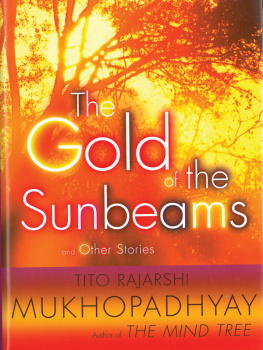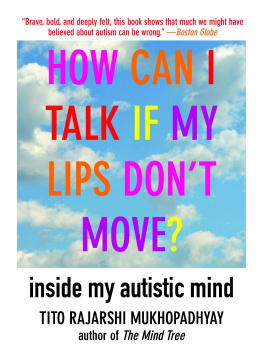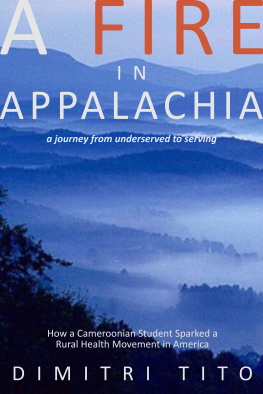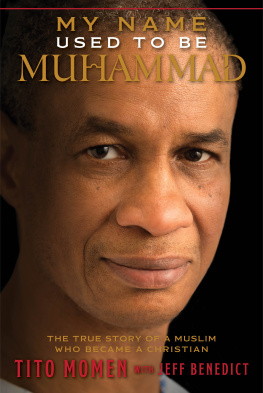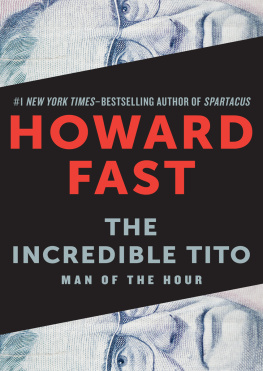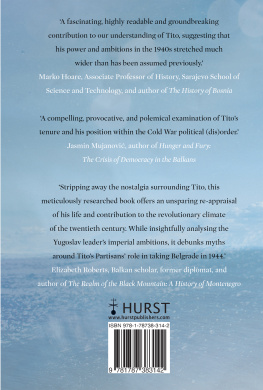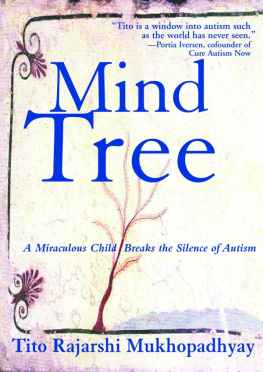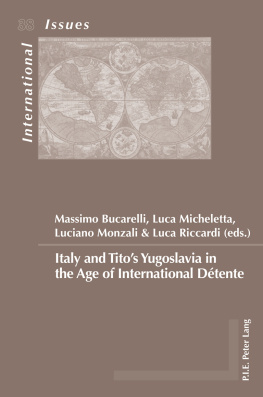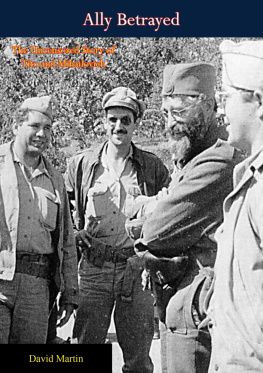The
Gold
of the
Sunbeams
Also by Tito Rajarshi Mukhopadhyay
The Mind Tree: A Miraculous Child
Breaks the Silence of Autism
How Can I Talk If My Lips Dont Move?
The
Gold
of the
Sunbeams
and Other Stories
Tito Rajarshi Mukhopadhyay
Introduction by Soma Mukhopadhyay

Arcade Publishing
New York
Copyright 2005, 2011 by Tito Rajarshi Mukhopadhyay
All Rights Reserved. No part of this book may be reproduced in any manner without the express written consent of the publisher, except in the case of brief excerpts in critical reviews or articles. All inquiries should be addressed to Arcade Publishing, 307 West 36th Street, 11th Floor, New York, NY 10018.
Arcade Publishing books may be purchased in bulk at special discounts for sales promotion, corporate gifts, fund-raising, or educational purposes. Special editions can also be created to specifications. For details, contact the Special Sales Department, Arcade Publishing, 307 West 36th Street, 11th Floor, New York, NY 10018 or .
Arcade Publishing is a registered trademark of Skyhorse Publishing, Inc., a Delaware corporation.
This is a work of fiction. Names, characters, places, and incidents are either the work of the authors imagination or are used fictitiously.
Visit our website at www.arcadepub.com.
Visit the authors website at www.halo-soma.org.
10 9 8 7 6 5 4 3 2 1
Designed by API
Library of Congress Cataloging-in-Publication Data is available on file.
ISBN: 978-1-61145-253-2
Printed in the United States of America
Contents
In 2001 my son Tito, who suffers from severe autism, and I came to the United States, when Cure Autism Now, an organization based in Los Angeles, California, invited us to take part in their research project. News of Titos remarkable cognitive ability had reached America, and a number of neuroscientists from various universities wanted to study him to see if his progress could be transferred to others suffering from the same disorder. When I received the invitation, I thought, What a wonderful opportunity for Tito and me. America had always been the land of our dreams, and here we were sponsored to go to Los Angeles for four months! These four months would be, I was sure, the most valuable and meaningful period of our life. We were eager to learn, eager to experience. In Bangalore, India, where we were then living, we had a small, cramped apartment without running water. If nothing else, I thought, for the next four months we would be blessed with all the water we wanted!
When Tito was still very young, I had begun to realize that he had serious problems: he was locked behind a barrier of silence. At first, I had no idea that the problem was autism, nor that the prognosis was so devastating. I took him from one doctor to another, trying to discover what his problem was, to no avail. All I was told was that he was mentally retarded, until finally he was diagnosed as severely autistic. Not only was he incapable of relating to others, but I saw that he had little or no control over his motor activities. Therefore he had to be closely and constantly supervised to make sure that when he was with others he did not embarrass himself socially. I was told he would never learn to read or write, or even understand. Yet I detected early on, from many of his reactions, that he seemed to understand what I was saying. I made up my mind to test that conviction on my part by reading to him, both in Bengali and in English, explaining words and ideas as I went along, and soon I realized that his cognitive ability was good. From that I went to an alphabet board, to teach him to spell. Using it, he began to respond to questions pointing out, letter by letter, his responses and later to answer by writing. In reading further, I decided to focus on English, because of its universality. I had begun teaching him when he was only three and a half, and by the time he was six doubtless imbued with the stories and plays I had been reading to him over the years he was writing himself. At first I had to fasten a pencil to his hand, but soon he was writing without being thus restricted. At eight, he had begun composing stories and poems of an amazing insight and complexity for anyone his age. For the next three years he continued to write, and by the time he was eleven he had more than enough material for a book. That book, entitled Beyond the Silence, was published first in Britain by the National Autistic Society. Later, in America and other countries, a longer version, incorporating many of Titos new poems, was published under the title The Mind Tree, giving hope to autistic children around the world, and leading to our invitation to come to America.
As Titos tests progressed, we learned more and more about this remarkable country and its people. Every aspect of our new life in America was a wonder: The running water. No power cuts. Clean, wide streets. What we saw of California impressed us to no end. Soon I was asked to teach other autistic children, using the method I used with Tito. Although I was sure of my work, I did not know whether it would be effective with children new to my unusual Indian dress and my accent. Before long, however, the results were so positive that I was working long hours every day, having been given a years fellowship by Cure Autism Now to use my Rapid PromptingTM Method in a school for autistic children in Los Angeles. While working at the school I also focused on my larger mission: using my teaching method to reach out not only to children but also autistic adults throughout the United States.
In January 2003, 60 Minutes II featured Tito, me, and my work, as a result of which I was invited as a keynote speaker at various conferences and to conduct workshops around the country. Other children not involved in my school began coming to see me at my home for instruction and guidance, on Saturdays, Sundays, and after school on weekdays. After the children were gone, Tito continued to study and write under my guidance. I suddenly realized, however, that I was working 365 days a year, including Christmas and New Years! I decided I needed to slow down, to do justice to Tito, my health, and my mission. When in December 2003 I fell ill, I realized I could no longer handle all the clients by that time some 300, ranging in age from four to sixty clamoring for my services, hoping against hope that I could do for them, or their children, what I had been able to accomplish for Tito. The problem was, they lived all over the United States, and often they would call me, forgetting the difference in time zones, in the wee hours of the morning. Something had to change.
I called some of my clients-turned-friends and asked for their help. My work needs organizational help, I said, and I need some days off. I also need a paycheck that will support Tito and me. One who immediately and generously responded was my friend Linda Lange, who had a nonprofit organization called HALO Helping Autism through Learning and Outreach in Austin, Texas. I had earlier gone to Austin at her invitation in fact just after September 11, 2001, for I remember how empty and desolate the airport was and after my work there Linda handed me an envelope. I didnt open it then, for I dont feel its proper to open payment envelopes in front of the donor. But when I got home and did open it, I saw an amount so far above my expectations that I called Linda immediately and said I thought she had made a mistake. No, was her response, Its only what you deserve.

